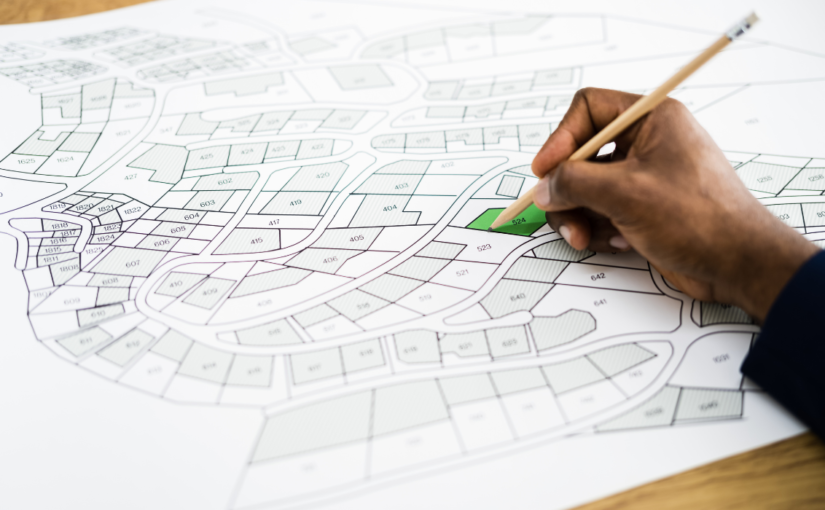back
The Future of Smart Zoning: How Technology is Changing Land Development
03-2023

Recent years have seen a considerable change in the land development industry, partly due to technological advancements. One of the important areas where this transition is most noticeable is in smart zoning, where new tools and methods enable developers to better utilize available resources and space.
Smart zoning is fundamentally about maximizing land use via the use of data and technology. This can entail anything from determining regions with the most potential for growth and development to assessing traffic patterns and public transit routes. Developers can choose more wisely where and how to build by using a more data-driven approach to land use, ultimately resulting in more sustainable and effective communities.
What will smart zoning look like in the future? Let’s examine some of the major developments and trends that are influencing this fast developing industry in more detail.
- Data-Driven Decision-Making
The availability of data is one of the main forces behind smart zoning. As smart sensors, networked devices, and other sources of real-time information have proliferated, developers are now able to gather enormous volumes of data on everything from traffic patterns to energy usage.
Developers can then use sophisticated algorithms and machine learning approaches to evaluate this data to find patterns and insights that might not have been visible otherwise. Developers that use this information to guide their land use decisions will be able to make more educated judgments that are supported by facts rather than assumptions or gut feelings.
- Mixed-Use Development
The growth of mixed-use developments is another significant trend in smart zoning. Developers are increasingly exploring for ways to build more integrated and connected communities as opposed to just building residential or commercial structures separately.
For instance, this could entail establishing business parks that also have green areas and recreation areas over retail spaces. Developers may build more lively, sustainable communities that are better able to meet the demands of their citizens by integrating several land uses into a single development.
- Smart Infrastructure
Another area where technology is influencing change in the land development industry is smart infrastructure. Developers may design more effective and sustainable systems by integrating sensors and other linked devices into structures, roadways, and other infrastructure.
For instance, intelligent streetlights may vary their brightness automatically based on the time of day, saving energy and lowering light pollution. By modifying watering schedules based on the weather, intelligent irrigation systems may conserve water and cut down on waste. Moreover, energy use can be tracked by smart building automation systems, which can then increase efficiency by changing heating and cooling settings.
- Digital Twin Technology
The development of digital twin technology is one of the most fascinating developments in the field of smart zoning. A digital twin is a virtual representation of a physical system or object that was developed using information from sensors and other sources.
In the context of land development, digital twins can be utilized to generate virtual representations of entire neighborhoods or cities. These models can then be used to test various hypotheses and plans, enabling developers to investigate various choices and spot potential problems before actual building even starts.
- Autonomous Vehicles
Finally, the development of autonomous cars will probably have a big influence on smart zoning in the future. Developers will need to reconsider conventional approaches to traffic management and infrastructure as self-driving cars become more prevalent.
For instance, special lanes or parking spaces may be required for driverless cars, and crossings may need to be rearranged to make room for them. By adopting a proactive approach to these difficulties, developers may ensure that their communities are well-equipped to handle the transition to a more autonomous future.
The Future of Smart Zoning is Bright
The future of smart zoning is looking bright, with data-driven decision-making, digital twin technologies, autonomous vehicles, and more. Developers may build more livable, efficient, and sustainable communities that are better able to meet the demands of their residents by adopting these trends and technologies.
It is obvious that the field of smart zoning is going through a major transformation, regardless of whether you are a developer, a planner, or just someone who is interested in the future of land development. Developers may build more lively, connected, and sustainable communities that are better prepared to face the challenges of the twenty-first century by utilizing the most recent tools and technologies.
Future developments in the field of smart zoning are probably going to be even more intriguing. The options range from cutting-edge data analytics to brand-new methods for infrastructure and transportation. Hence, if you have a love for land development and want to have a beneficial impact on the globe, this is the perfect time to enter this fast developing industry.
F2H Capital Group is a debt advisory firm specializing in negotiating the best terms for your commercial real estate projects. The company offers a range of financial products and services, including fixed loans, bridge loans, and construction loans across all asset types. Please contact us for any of your financing needs.

